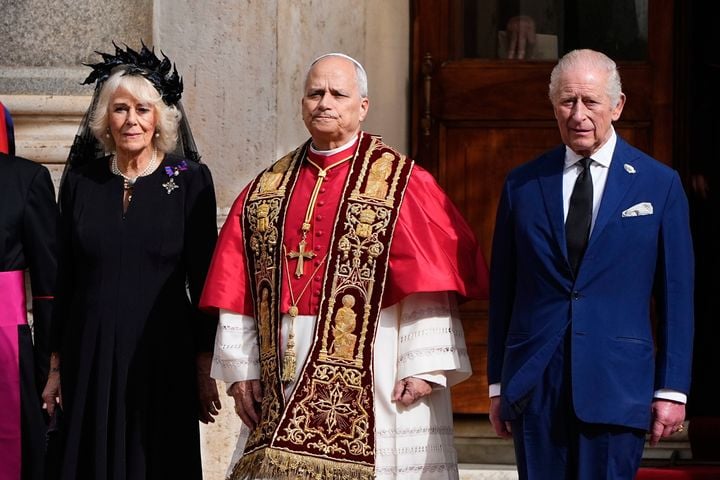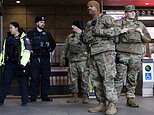URGENT UPDATE: An Orange Lodge has publicly criticized King Charles III for his recent prayer meeting with Pope Leo XIV, expressing deep concern over the implications of this engagement. The letter, released by Lattery Purple Heroes in Markethill, reflects growing tensions within unionism over the King’s actions.
This controversy follows King Charles becoming the first reigning English monarch since Henry VIII to pray publicly with a pope. The meeting, which occurred last month, has prompted backlash from various factions, particularly within the Orange Order. They have urged the King to reconsider his commitments outlined in his coronation oath.
The letter addressed to Sir Clive Alderton, the King’s principal private secretary, articulates the Lodge’s “sad criticism” regarding Charles’s decision to engage in joint prayers with Catholic leaders. The document states, “After much deliberation and with the greatest of regret, we as a private Orange Lodge…find ourselves in the position of having to write in sad criticism regarding the joint prayer service.” The Lodge emphasizes its loyalty to the Crown while questioning the King’s decision.
“His Majesty took a Coronation Oath to be Defender of the Protestant Faith,”
The Lodge’s letter continues to assert that King Charles’s actions may alienate loyal subjects of the Crown, stating, “We cannot understand why His Majesty wishes to alienate further those still loyal to the Crown.” This sentiment echoes the concerns expressed by leaders within the Orange Order, who have previously labeled the Pope’s theological positions as “obnoxious” and lacking biblical foundation.
Notably, Kyle Paisley, son of the late DUP founder Ian Paisley, has publicly urged the King to either cancel the engagement or “abdicate” in favor of someone who aligns more closely with Protestant values. He stated that a true defender of the faith should not shy away from declaring their beliefs.
This development raises significant questions about the monarchy’s role in a diverse religious landscape. A representative from Buckingham Palace defended the meeting, emphasizing its importance in fostering relations between churches and recognizing the theme of unity, describing the engagement as a moment of hope.
The Orange Lodge’s letter also reflects a broader sentiment of disappointment among its members, with the Orange Standard noting that “many members of the Orange family will have been disappointed” by the King’s actions.
As this situation unfolds, observers will be keenly watching for any further statements from the monarchy or the Orange Order. The implications of this criticism could resonate beyond the immediate community, impacting the perception of the monarchy within the United Kingdom.
With the tensions highlighted in the letter and the ongoing discussions among unionist factions, the future of King Charles’s relationship with various religious communities may hinge on his response to these concerns. Stay tuned for updates as this story develops.







